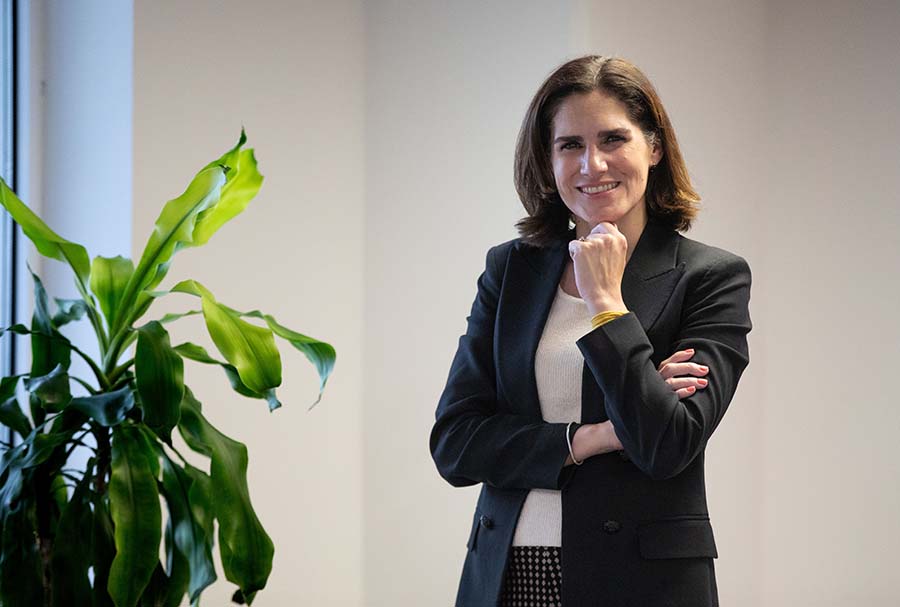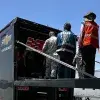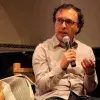“We human beings are born with the ability to share but we switch it off at some point. It can always be turned back on again though.”
This is the opinion of Lorena Guillé, Director of the Femsa Foundation, who has dedicated her life to altruism and social aid efforts in a serious and professional manner.
In an interview with CONECTA, the Tec de Monterrey graduate tells us about how her passion for helping began and the challenges she has encountered along the way.
The roots of her social vision
“I was fortunate to grow up in a family which valued generosity. From a very young age, I was disturbed, not only by difference, but also indifference, and it hurt me.
“I was also fortunate enough to study at the Tec, which opened my eyes to the world. I joined student groups and met people from other countries who were involved in different causes,” says Guillé.
Guillé says that she was able to interact with young people from many countries thanks to these opportunities, including refugees who came to Mexico fleeing the political situation in their countries.
In 2002, as a student at Tec de Monterrey, Guillé volunteered as a temporary assistant to Kofi Annan, then UN Secretary-General, at the conference held in Monterrey.
“I volunteered [for the Conference on Financing for Development] and ended up being chosen to be Kofi Annan’s personal assistant; I met Fidel Castro [President of Cuba] and Hugo Chavez [President of Venezuela] there,” she recalls.
“We human beings are born with the ability to share.”
Destiny led her to social responsibility
However, despite her background and interest in social issues, Guillé continued with her Industrial and Systems Engineering degree and got a job at Gamesa-Quaker after graduating from the Tec.
However, an unexpected situation would lead her into the world of altruism and social responsibility.
Her boss had been asked to start Fundación Gamesa Quaker A.C. However, when she fell pregnant, Guillé had to take on more responsibility for the project and began doing research.
“At that time, my boss was going through a high-risk pregnancy, so I stepped in to get the job done. Working alongside her allowed me to become more involved at a young age,” she says.
“I fell in love with the subject, and I never left... destiny pulled me in,” she says.
“I fell in love with the subject, and I never left... destiny pulled me in.”
Professionalizing altruism
Realizing that she wanted to dedicate herself to altruism, Guillé understood that she needed to get more training.
“I decided I had to study philanthropy and finance,” she says.
She also says she realized that a true philanthropy professional needs to have skills such as those of a CEO or someone engaged in public service: finance, leadership, planning, negotiation, and more.
Her training and passion for the subject would lead her to be invited to lead the Cinépolis Foundation and the Social Responsibility area of Cinépolis, a position she would hold for 14 years until she was invited by FEMSA to lead its foundation as well.
The challenges of dreaming to change the world
When asked what her dream is, Lorena smiles, thinks about it, and firmly answers that it is to change the world.
“My dream is big, and it’s to change the world. My dream is to know that I have served the world and set an example to my children, that the planet is better with them on it, and that it is up to them to contribute to making it better for others,” she says.
“We human beings are born with the ability to share but we switch it off at some point. It can always be turned back on again though,” she says.
However, she also says that other options and possibilities have arisen along the way, which have forced her to make tough decisions and remain true to her purpose.
“I was invited to work at one company for double what I was earning, but I didn’t believe in the products they were selling, and I felt conflicted,” she says.
“There are moments in life where you are tested and you have to make a decision that is in line with what you really want,” she explains.
“My dream is big and it’s to change the world.”
“[However] I decided to be true to my purpose,” she adds.
Guillé recommends that everyone should aim for that purpose and stay true to it, and to reach out to people who have the same passion.
“Sing to your own tune and connect with your purpose. It’s within you.
“Listen to what’s going on around you because there are many just like you who are aiming to connect to build something bigger than their own story. You will most likely find your tribe there.”
Femsa Foundation and its partnership with the Tec
Created in 2008, the Femsa Foundation was born with the premise that a sustainable company can only exist with sustainable communities. They currently work with more than 250 partners in 18 countries.
Together with Tec de Monterrey, the Femsa Foundation has collaborated for several years on behalf of society and education, explains Guillé-Laris.
“We’ve been collaborating with the Tec for 14 years. The first project we co-founded was the Water Center for Latin America and the Caribbean, as water is one of our most important areas of action.
“The most important part is our shared vision of influencing prosperity, which the Tec takes very seriously through the strengthening of human flourishing,” she says.
Human flourishing is defined within the Tec as the “process of developing people’s skills, strengths, and virtues in different areas of their lives.”

Femsa Foundation’s priorities
The Femsa Foundation works in four major areas to have a positive impact on the future, says Lorena.
1. Water security:
“We understand how we should act with regard to water and the problems that need to be solved to maintain its quality and quantity.”
2. Early childhood:
“We promote a fundamental stage (0-6 years), when children develop their intellectual, social, and cognitive skills, so that they can transform their environment with equity and justice.”
3. Art and culture:
“We bring art to communities with spaces for self-reflection and dialog, to increase participation and build empathetic and united generations.”
4. Circular economy:
“We aim to stop waste going to the environment so that we can build a cleaner and healthier Latin America to live in.”
ALSO READ:





